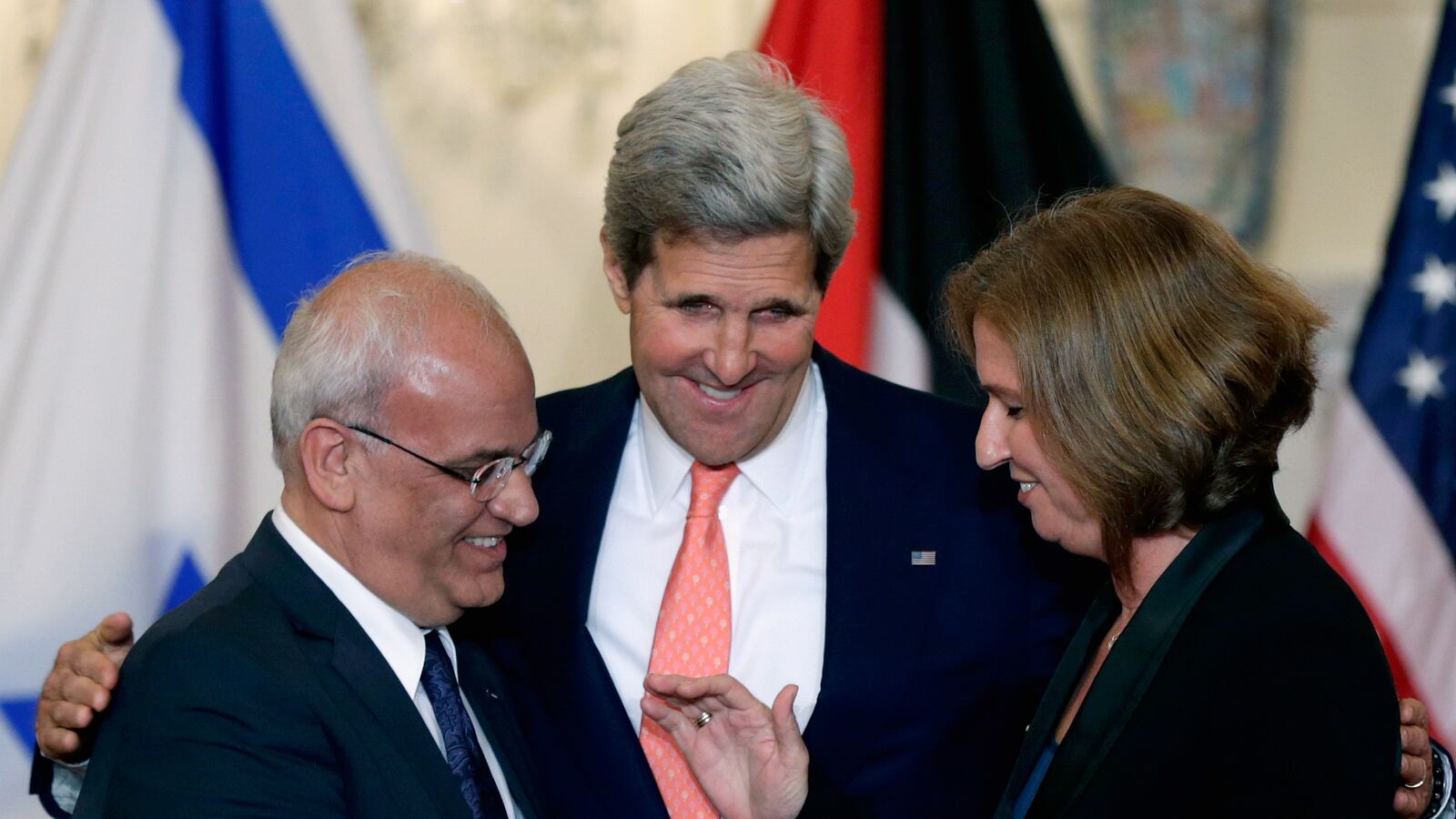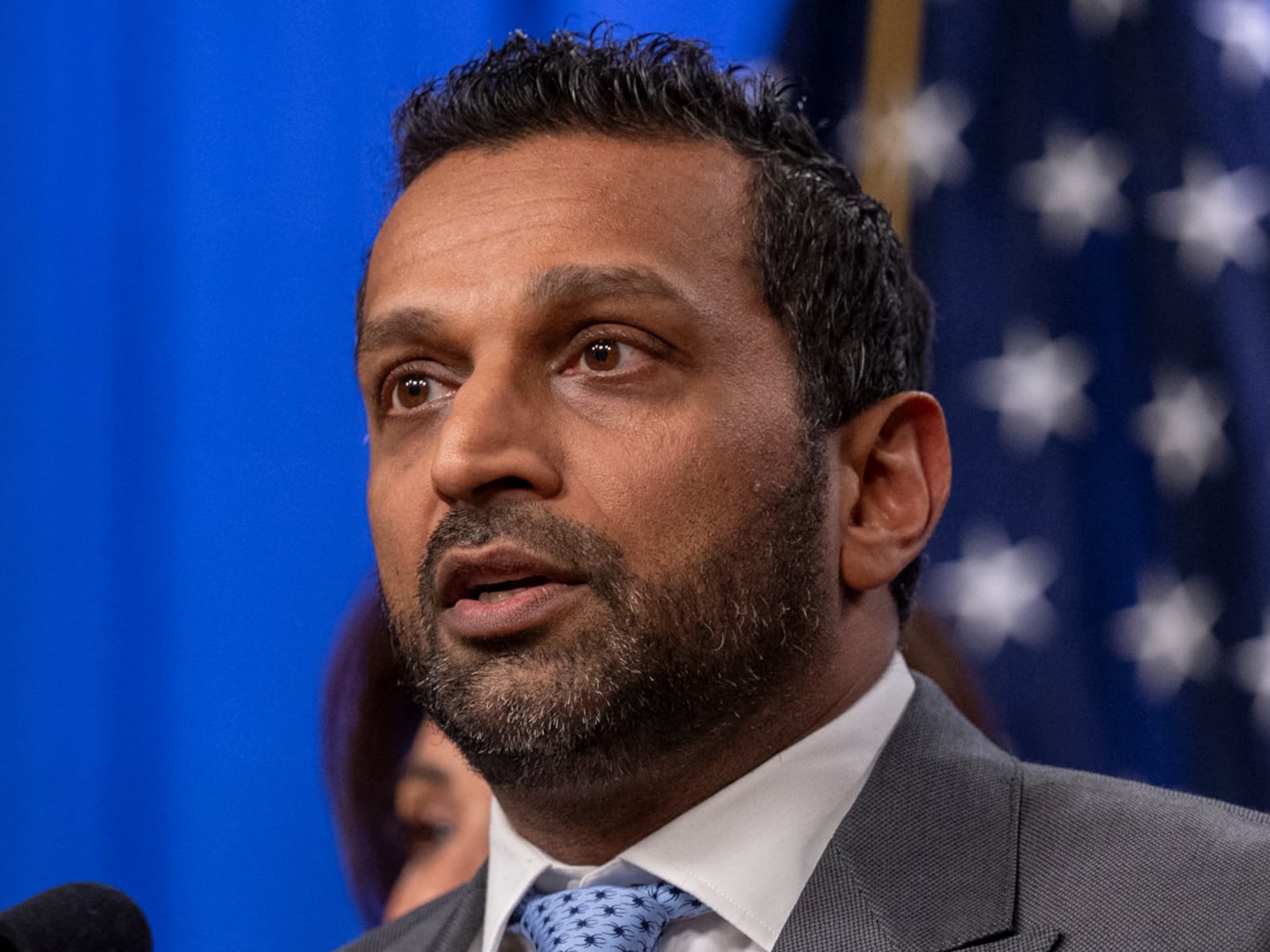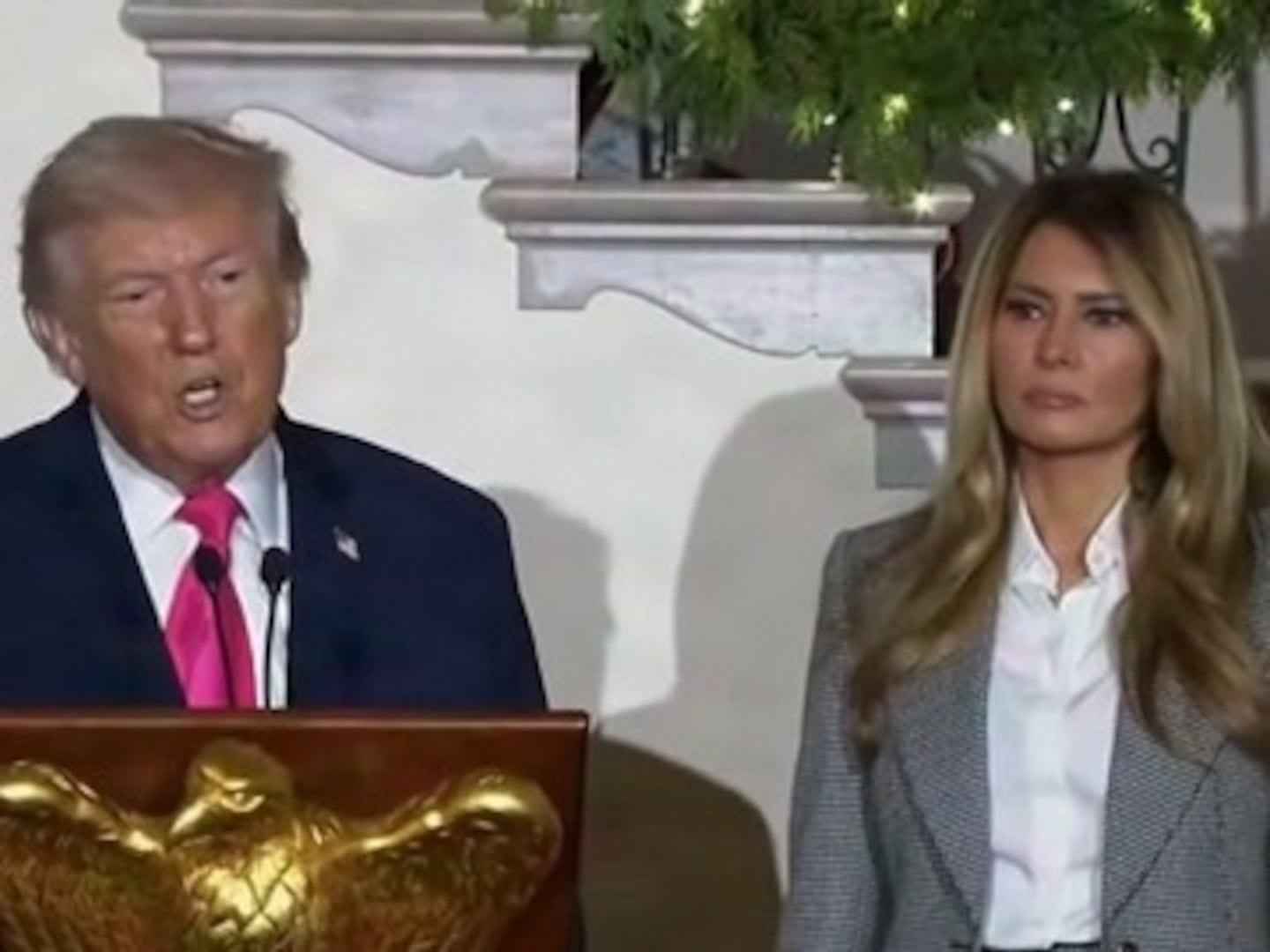Secretary of State John Kerry has just finished his press conference with Tzipi Livni and Saeb Erekat. It began close to an hour late, which although rich in metaphor probably means they were ironing out the details of what they were going to say.

It was a good presser, as far as these things go. Lots of bromides, especially by Kerry, filled with the language of hope. All three, but especially Kerry and Livni, emphasized the difficulties that lie ahead; but also their determination to see it through. Livni also went personal, referring to “Saeb,” which might be a good sign: familiarity and trust is important for successful negotiations. Also noteworthy is that Livni paid tribute to Benjamin Netanyahu, declaring his decision to release Palestinian prisoners “a courageous act of leadership.” Given their political enmity, it wasn’t even necessary to say it. Indeed, Robert Danin quipped that the breakthrough Kerry might have achieved is “peace between Tzipi Livni and PM Netanyahu!”
Of the three, Erekat seemed the least excited or hopeful. That’s not unexpected: despite the fact that at least one of their preconditions to begin talks was met while none of the Israelis’ were, the Palestinians are clearly the weaker party here. Erekat’s own relations with Abbas and his position within the Palestinian Authority are troubled and weak, and he’s got to know that the chances of failure are not small.But two declarations in particular stand out from the presser that, if the negotiators stick to, could give these talks a real chance at success. The first was that, according to Kerry, the discussions would include, well, everything: “all of the final status issues” and “all other issues” were on the table, with the goal of ending the conflict and ending all existing claims once and for all. (Erekat reiterated this, by noting how “delighted” he was that all final status were up for discussion.)
It’s not that other moments of negotiation didn’t include all of the final status issues. But in recent years all sorts of ideas for restarting talks have been floated, including dealing with certain issues over others. Netanyahu also wants to focus on security, while Palestinians want to focus on borders and settlements. Putting everything on the table means that both sides get what they want. It also allows them to connect different issues together, making trade-offs where necessary and making it easier to see the final completed puzzle. This also tracks with Martin Indyk’s own ideas and conclusions regarding past failures. That the talks will take place alongside plans to develop the Palestinian economy and continued security cooperation between Israelis, Palestinians, and Americans, and within a declared but somewhat-loose time frame of nine months, indicates we’ve reached the point at which a final push to end the conflict seems the best option.
Of course, the downside to including everything is that if the talks fail, they’ll fail spectacularly. But that sense of doom might just be enough to keep all sides going.
The second innovation is Kerry’s announcement that everything will be secret, and nothing will be revealed unless—by agreement of all sides—he’s the one who tells it. It’s not that public discussions haven’t led to agreements in the past (for example, the Egypt-Israel peace treaty). But it is also true that secret talks have been very useful at overcoming each side's reticence and sense of threats from domestic rivals, allowed them to avoid costly battles for public opinion, and undermined the damaging prospects of grandstanding, which can harden positions. A closed negotiating process forces both sides to concentrate on the issues at hand, but can also make for a more intimate setting to talk, which in turn can lead to trust and levels of comfort, greater openness on the issues, and an enhanced willingness to compromise. We know this to have been the case in the process leading to the Declaration of Principles and the Israel-Jordan peace treaty.
The disadvantage is that secrecy undermines the ability to have a broader public and political debate over these critical issues, which might be used to undermine any final agreement (as happened in Israel regarding the Oslo Accords). Lack of input from a wider range of actors is part of what has made Netanyahu suspicious of this round of talks: he doesn’t want to start off where Ehud Barak and Ehud Olmert left off precisely because he didn’t agree to their terms.
Still, on balance, Kerry’s made the right choice, and the Israelis and Palestinians are right to go along with it. As pretty much everyone has pointed out, there’s still a long way to go, and the odds are against a successful conclusion. But one has to start somewhere; and this is a very good start.






